Case Study: Teacher education in Physical Education in Peru
Background of the project and introduction of activities
In Peru, the number of physical education classes in elementary schools has increased from 2 to 3 per week since 2017, and the development of teachers who can provide appropriate physical education classes has become an urgent issue. The number of people in Peru who are interested in Japanese-style school physical education and lesson study (lesson study) is increasing, influenced by Japan’s international contribution projects so far. Therefore, in this project, Hiroshima University will play a central role, aiming to establish a physical education teacher training system using lesson studies and provide support for the development of physical education teachers in Peru. In addition, we tried to conduct teacher training sessions using lesson studies not only in the capital city of Lima, but also in local cities. First, in 2018, we held a teacher training workshop in Lima City, visited the regional cities of Arequipa and Cusco, and started preparations for conducting a teacher training workshop in both cities. In 2019, teacher training sessions will be held in those two cities.
Specific examples and results of activities this year
Hiroshima University, the Hiroshima Prefectural Board of Education and physical education specialists from Lima formed a physical education team and visited Arequipa and Cusco on 26-30 November, 2019, and conducted the 1st teacher training workshop utilizing lesson study in both cities. In this workshop, after introducing a physical education class in Japan and conducting panel discussions and lectures on lesson studies, a series of lesson studies, called “advance study meeting – lesson practice – follow-up meeting” was demonstrated by the Japanese team. In lesson practice, Japanese physical education teachers actually lectured on the subject of “volleyball” and “Adapted Sports*” . At the follow-up meeting, physical education specialists from Hiroshima University and the Hiroshima Board of Education reviewed the class.
*Exercise, sports and recreation modified or newly created so that disabled people, the elderly, children or women can participate.
Almost all of the physical education teachers from the two cities participated in the workshop, bringing in total of nearly 900 participants. In addition to the physical education teachers, executives from the Ministry of Education, education administrators from both cities, and university officials participated in the event, which made a great ripple effect. Until now, teachers have been observing classes only for the purpose of evaluation of teachers in Peru, but it seemed very fresh to observe each other’s classes in order to enhance teachers’ mutual teaching skills. Both cities are starting to work on introducing lesson studies. Even after the workshop, exchanges with stakeholders and participants have continued. Further development can be expected in the future.
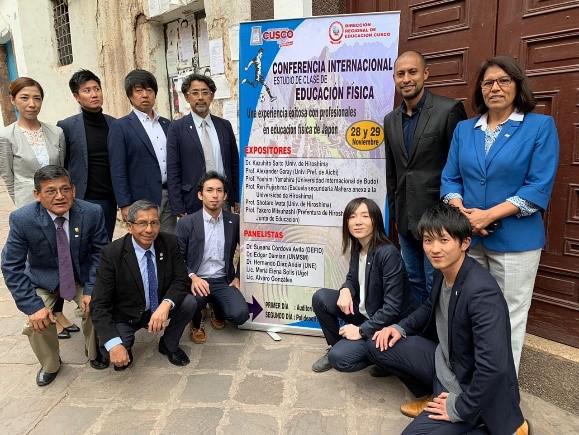
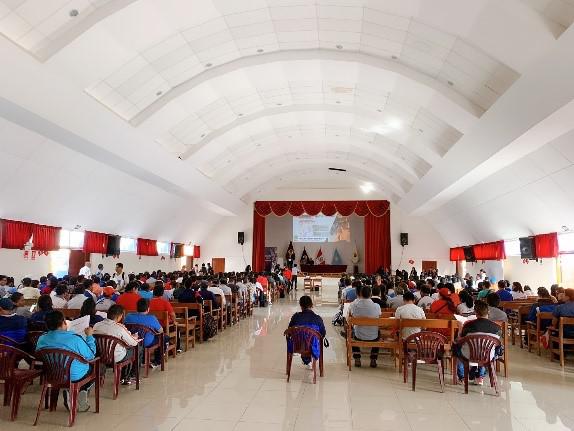
Teacher training workshop in Arequipa |
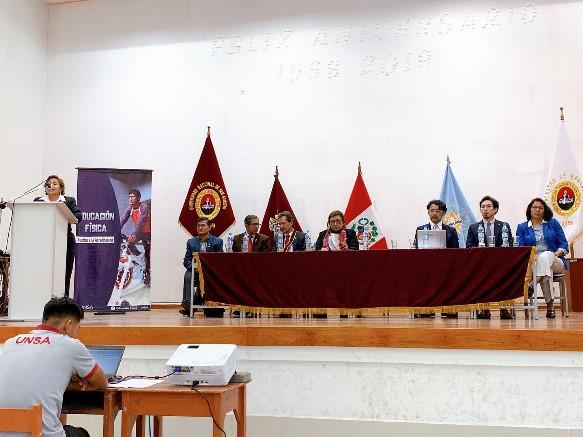
Panel Discussion (Arequipa) |
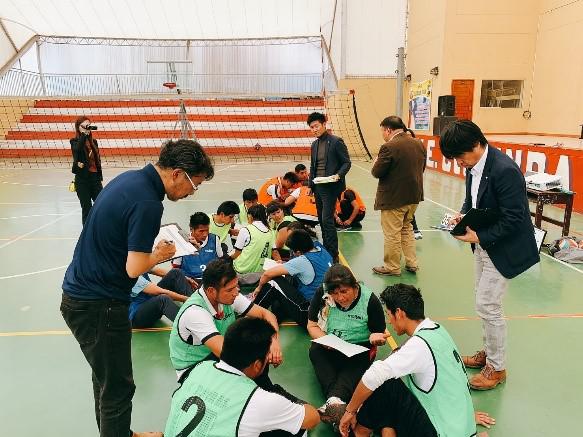
Lesson Practice (Cusco) |
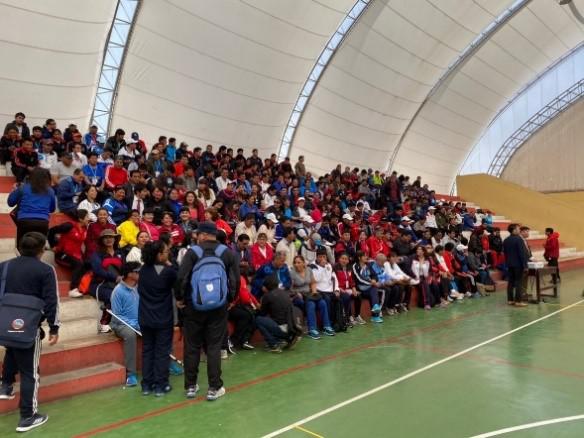
Follow-up meeting(Cusco) |
The good points of Japanese education and the lessons learned from Peru
Through this project, we realized the key point of Japanese school culture, which is a lesson study, that is, teachers observe each other’s classes and discuss how to improve their classes. It also reminded us that lesson studies are a cost-effective way of teaching which doesn’t require a large budget, and they are important tools for building school teachers’ colleagues and networking with relevant institutions.
On the other hand, we were also convinced that conducting lesson study regularly, especially on a public basis, would lead to teacher growth, but also would impose a new burden on teachers. In order to expand the lesson plan in Peru, it is not a good idea to proceed without considering the actual burden on the teacher. Adapting the Japanese way as is could be a burden on school teachers in Peru. So, we are trying to introduce lesson studies that can be conducted in Peru together with physical education experts in Peru, referring to the Japanese model. Then, more simplified lesson study system compared to Japanese one is being developed. We feel that this system could be a model which is required in Japanese education community where the reform of teachers’ working styles is called for.
Future aspirations and possibilities for expansion to other countries
Teacher training using lesson studies is just about to expand throughout Peru. However, there is a limit to the extent of physical education alone. Expansion of lesson studies in many schools will be achieved by expanding to other subjects as well as physical education.
Lesson studies are not often practiced throughout South America. I hope that if the expansion of lesson studies in Peru spreads to South American countries, it will lead to the improvement of the quality of education in many countries of South America region.
(2018 EDU-Port certified project: Hiroshima University)







